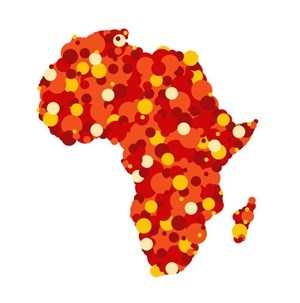
Top stories






More news


Marketing & Media
Ads are coming to AI. Does that really have to be such a bad thing?














The appointment also serves as part of UCT’s path towards decolonising the institution, and comes almost 20 years after Mamdani left UCT following a fallout with his faculty on the implementation of a foundation course on Africa that he had developed. The faculty rejected the course.
Mamdani returned to UCT to deliver the TB Davie Memorial Lecture on 22 August 2017. This was a profoundly historic occasion for both CAS and UCT. His lecture – titled Decolonising the Post-Colonial University and delivered to a much inspired, excited and indeed provocative and engaged audience of hundreds of students, staff and workers – brought to the public space the vital debates that are currently intensely reverberating across South Africa’s higher education institutions.
Professor Lungisile Ntsebeza, director for the CAS, said: “This appointment is particularly exciting and profoundly significant in light of the pressure from the student movements since March 2015 for UCT to be decolonised and to fundamentally transform its curricula, with numerous references by student leaders to the relevant scholarship of Mamdani.”
The well documented historic, controversial and famously dubbed ‘Mamdani affair’ (1996–99) resonates with the previous infamous ‘Mafeje Affair’ of 1968 at UCT when he (Archie Mafeje) applied for the AC Jordan Chair but, despite his 1968 appointment, was denied the position. During his previous tenure at UCT, Mamdani served as the first AC Jordan Chair in 1996, and later as director of the CAS.
Said Ntsebeza: “However, once in the position, Mamdani met with considerable institutional opposition to implement relevant scholarship in Africa. The major public fall out with Mamdani in African Studies at UCT (1996–99) was over a foundation course on Africa that he had developed which was then rejected by the white-dominated faculty. This led to Mamdani’s public critique that UCT was promoting ‘Bantu Studies’ and ‘South African exceptionalism’ as ‘African Studies’. The appointment of Mamdani as Honorary Professor in CAS is therefore nothing less than institutionally historic.
“Almost two decades later, after the institutional fall out, of the core African Studies courses he argued for to be introduced such as ‘Problematising the Study of Africa’ was successfully implemented as a core course at post-graduate level in African Studies, and much of the themes within his scholarship have been introduced in the highly successful foundational African Studies major first rolled out in 2017,” said Ntsebeza.
Once voted the world’s ninth most important public intellectual by the US’s Foreign Policy and the UK’s Prospect magazines, Mamdani is currently director and Professor of the Makerere Institute of Social Research at Makerere University, Kampala, Uganda, and Herbert Lehman Professor of Government in the Departments of Anthropology, Middle Eastern, South Asian, and African Studies (MESAAS), Political Science and School of International and Public Affairs at Columbia University, New York, where he was also director of the Institute of African Studies from 1999 to 2004.
Mamdani received his PhD from Harvard University and taught at the University of Dar-es-Salaam. He is the founding director of the Centre for Basic Research in Kampala, Uganda (1987–96). Mamdani was president of the Council for the Development of Social Research in Africa from 1999 to 2002.
He is the author of veritable and widely cited African Studies classics such as When Victims Become Killers: Colonialism, nativism and genocide in Rwanda (Princeton 2001); and Citizen and Subject: Contemporary Africa and the legacy of late colonialism (Princeton 1996), which was awarded the Herskovitz Prize of the African Studies Association and named one of Africa’s greatest books of the 20th century.
His texts have been core readings for undergraduate and post-graduate studies at UCT and far beyond on the major debates on the study of African history and politics, exploring the intersection between politics and culture, comparative studies of colonialism, civil wars and the state, and genocide in Africa.